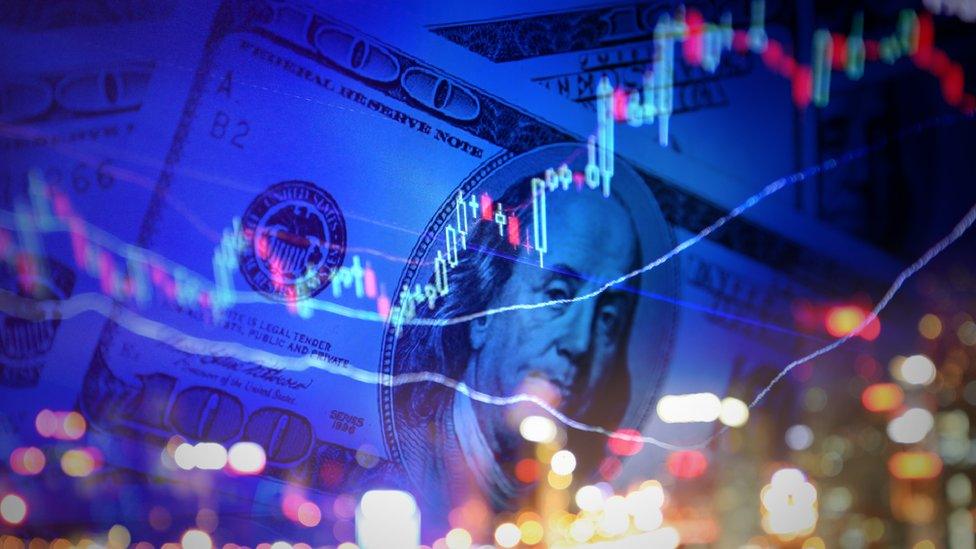Bitcoin - risky bubble or the future?
- Published
- comments

First, full disclosure - I am a beneficiary of the Bitcoin bubble.
Back in April 2016, while working on a story about the cryptocurrency, I bought 0.17 Bitcoin for $87, which was then equivalent to about £60.
Over the 18 months since, I confess I have opened my Bitcoin wallet on my smartphone with increasing frequency, staring with mounting disbelief at my balance which stands today at $1,713 - getting on for £1,300.
All along, this has felt like the latest, maddest speculative bubble, a tulip fever for the hi-tech era.
On its helter skelter ride towards $10,000, there have been plenty of occasions where Bitcoin has seemed in trouble - splits in the community over how it should be governed, robberies at exchanges, warnings from regulators.
But every time that pundits have warned the bubble is about to burst, the currency has stuttered for a few days and then gone charging higher.
Bitcoin pizza
Along the way, it has lost one of the core features of a currency in that it is no longer much used as a means of exchange.
A couple of years ago, there were all kinds of stories about ways you could spend Bitcoin - a pub in Shoreditch accepted it, a newsagent in Swanage boasted that a customer had bought a Kitcat with it, I even ordered a pizza paid for with the currency.
Now, nobody who owns Bitcoin wants to spend it - why would you when it will be worth more tomorrow?
Neither is it quite as easy and cheap a way of moving money around the world as its backers once claimed, with fees for exchanging it into fiat currencies rising and law enforcement agencies on the lookout for evidence of money laundering.
Bubble?
But the biggest shadow over Bitcoin's future is the growing evidence that it is hugely wasteful in terms of energy use. By one estimate, the process of mining new coins and recording new Bitcoin transactions now consumes more electricity each year than is used by Ireland.
The continued rise in the value of Bitcoin looks unsustainable in both economic and environmental terms.
But there's an old saying that, when the last naysayer changes their mind and gives in to an investment craze, that's when a bubble bursts.
So look out for JP Morgan Chase boss Jamie Dimon, who in October described investors in Bitcoin as "stupid".
When he starts saying cryptocurrencies are the future, it may be time to sell.